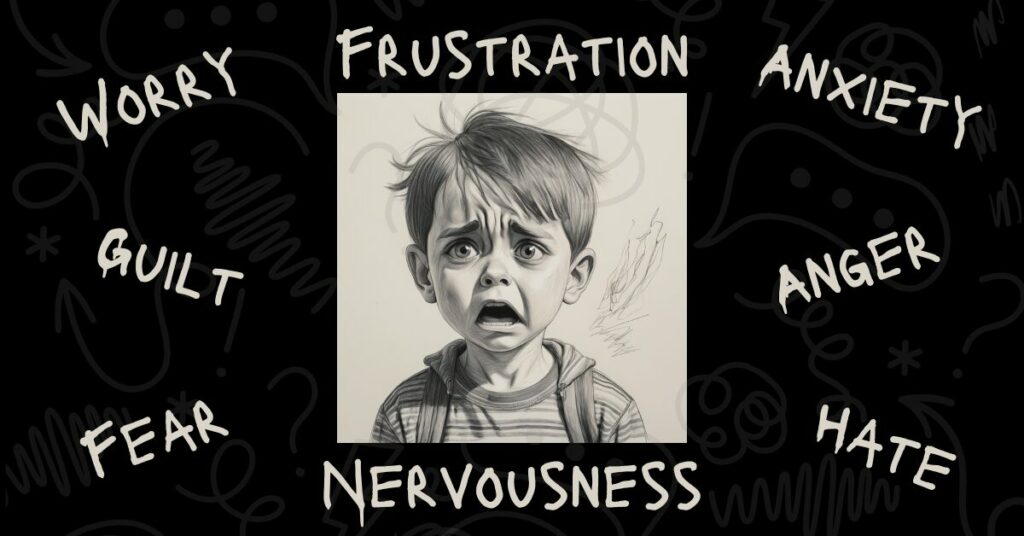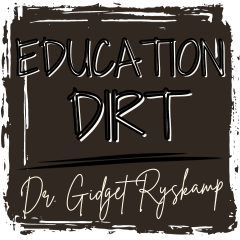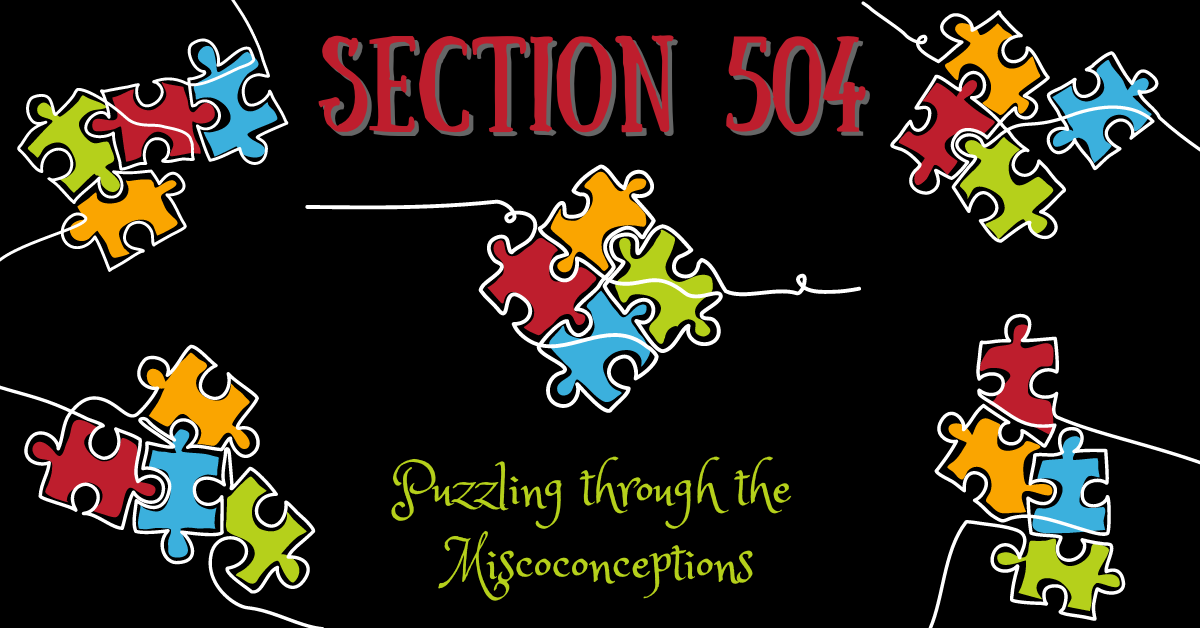This blog post is quite lengthy, as I’ve shared a detailed account of our journey. Feel free to read the sections that resonate with you the most.
In a previous post, How Motherly Intuition Led to Early Detection of Learning Disabilities, I shared the story of how my maternal instincts led to the early detection and diagnosis of learning disabilities in my older son, resulting in the implementation of a 504 Plan. In this follow-up, I discuss my younger son’s challenges and the regrets I have in regards to my delay in listening to my intuition.
Early Signs of Distress
During infancy, my younger son displayed signs of distress, struggling to self-soothe and often crying inconsolably, only finding comfort when being held. My husband and I took turns attempting to soothe him, resorting to lengthy walks in the garage while wearing noise-canceling headphones and having him nestled against our chests in a baby carrier. Despite our concerns, the pediatrician attributed his behavior to colic, leaving us puzzled and unable to identify the root cause.
Determined to uncover the source of his distress, I observed patterns in his episodes and suspected a dairy intolerance, noting a correlation between his worst bouts of crying and my consumption of cheese or ice cream. Despite my intuition, the doctor dismissed my concerns, citing insufficient evidence that dairy in breast milk could trigger such reactions. Nevertheless, upon introducing milk to his diet at age one, my son violently vomited, reminiscent of a scene from The Exorcist. I regret not heeding my instincts sooner.
Struggles and Strategies
You would think that I would have considered mother’s intuition when future issues arose, but life has a way of challenging what you think. As my son aged, his crying fits turned into full-blown temper tantrums. Some would be quick while others would last hours. He struggled to calm himself, and my husband and I struggled with what to do help him. I read books, spoke with a variety of professionals, and went to parenting seminars to learn as much as I could about temper tantrums and children who struggled with emotions. Much of the research states that tantrums are a normal part of child development, but I had a suspicion that it was more than that. However, I let the research be my guide and employed a variety of strategies to help my son.
Around the age of four, my son seemed to be getting better. He attended a pre-K program that used Love and Logic, a program developed by a former school principal, an education and mental health consultant, and a psychiatrist. I attended the school’s parenting class and a Love and Logic seminar to learn more about how to incorporate the techniques in my home. I saw progress with both my children and began to think that we were over the temper tantrum phase, just as the research predicted. Things were finally looking up!

Emotional Instability
The stark reality of my son’s emotional issues hit hard after my husband deployed. My son’s routine was completely upended, and he didn’t handle the change well. The first month of my husband’s absence was torture, but as a working mother, I did my best helping him adjust. We finally got a new routine and things again calmed down until my husband’s return. This cycle of emotional instability continued to happen anytime my husband deployed, no matter the length of time. Once again, I turned to research and professionals for information and advice, repeatedly being told this was normal in military children.
Persistent Worry
Having an August birthday, he was one of the youngest kids in his classes. This was a concern for me, as I worried that he would struggle academically. He did struggle with reading, but the use of interventions kept him on grade level. He seemed to excel in math and memorization. It was evident to his teachers and me that he was intelligent, and with minimal help he advanced to the next grade each year. His issues were always his inability to stay still and his emotional outbursts when things didn’t go the way he expected. At this point, I was worried that he had an emotional disorder. I took him to a psychiatrist and discussed his issues with a few school psychologists. Once again, I was the only one who seemed worried. Even my husband thought I was crazy for thinking something was wrong with our son. Again, I trusted those with the degrees and advanced knowledge of psychological issues instead of my intuition.
School Challenges
After COVID, we moved to Florida where my son attended a primary school for his second grade year. He had a great teacher who worked with him, giving him a lot of support and implementing appropriate accommodations. Although he had some struggles, we saw improvement in his behavior. His teacher was very focused on structure and routine in her class, which my son thrived on. His father no longer had to deploy, so there was also stability at home. Things were headed in a positive direction, but I still saw little quirks that continued to worry me.
The biggest issues began during my son’s third grade year. We moved and due to school zoning, he had to attend a school away from the friends he’d made during second grade. Although he makes friends easily, he struggles with change. The school was also not as supportive as prior schools, and he was constantly bullied. He even had issues with some staff treating him disrespectfully. When he reported issues, his concerns were ignored. He lost trust in adults, especially in a school setting. When asked who he felt comfortable talking with in the school, he could only list two people. A school should be a safe space for children, and he no longer had that.
The bullying led to my son developing school anxiety. He developed a hatred for school and would get sick every Sunday night and a few mornings during the week. One morning, he got sick in the drop off line so bad that he ended up in the ER. I reported the bullying and inappropriate behaviors of the staff and principal, but no actions were taken. My son continued to be a victim, and his anxiety and hatred grew. Once his anxiety was officially diagnosed, I reported it to the school, including his teacher, the counselor, and the principal. At this point, they should have instigated a 504 meeting to determine his eligibility. This was not done.
Harassment and bullying continued throughout his third, fourth, and fifth grade years. He was seeing a therapist on a regular basis, but his emotions were often out of control. When I discussed things with the therapist and my husband, they seemed to think my son’s issues were all connected to the anxiety and hatred for school. My gut told me it was more.

Dysregulation
At times, he’d have explosive emotional outbursts while other times, he’d completely shut down. He struggled to express his emotions, verbally and physically. He didn’t use eye contact or say I love you even when his dad and I did. He never seemed to feel sorry for his actions, often blaming everyone else for what happened. He never understood why he received negative consequences for things he did wrong and would repeatedly scream “Why?” even after explanations were given. In fact, he couldn’t comprehend that actions had consequences, both positive and negative. He became easily agitated over small things, especially when things didn’t go his way or plans changed. Being told no resulted in extreme outbursts. Things were not good!
The Unthinkable Happened
In a heart-wrenching turn of events, a distressing incident unfolded involving my son at school. Facing harassment, he reached a breaking point and reacted in a regrettable manner. As a consequence, he found himself suspended, with a disciplinary hearing looming on the horizon.
In the face of this crisis, my maternal instincts finally kicked into high gear. With an unwavering determination to advocate for my son’s well-being, I sprang into action. Recognizing the importance of addressing his disability in the disciplinary process, I swiftly initiated requests for both a 504 Meeting and a Manifestation Hearing.
In the turbulent aftermath of the incident, my priority remained steadfast: ensuring that my son’s unique needs were considered and respected throughout the disciplinary proceedings. This pivotal moment underscored the vital role of parental advocacy in safeguarding the rights and dignity of children with disabilities within the educational system.
While my son faced a significant consequence, the situation could have escalated to an even greater extent. However, the concerning aspect was the district’s failure to acknowledge the impact of the consequence in relation to his disability. Consequently, I made the decision to withdraw him from the school system and enrolled him in a homeschool program. Additionally, I initiated the process of arranging evaluations for potential additional disabilities.

Validation of Parental Instincts
The outcome of my son’s evaluation was a revelation, confirming what my instincts had been telling me all along. Despite this validation, I couldn’t shake the overwhelming guilt that I hadn’t trusted myself sooner. Armed with a clearer understanding of his challenges, my focus shifted towards ensuring his educational experience would be supportive and successful.
Upon completing his punishment, I took decisive action and initiated a school transfer for my son. Enrolling him in a school that demonstrated a genuine commitment to his success was paramount. Together, we embarked on a journey to address his physical, mental, and emotional needs, working tirelessly to provide him with the support and resources he required.
The results have been nothing short of remarkable. My son is thriving in his new environment, surpassing all expectations. This experience has reinforced my belief in the power of parental intuition. It serves as a poignant reminder to trust our instincts, for they often lead us to the answers we seek.







